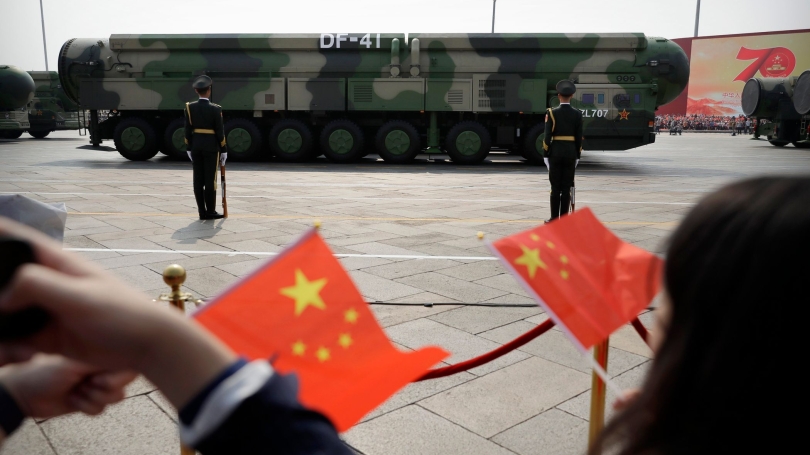
- About
- Programs
- Student Opportunities
- For Faculty
- News & Events
Back to Top Nav
Back to Top Nav
Back to Top Nav
Back to Top Nav
Back to Top Nav
In a Jan 9, 2024 letter to the editor of the Wall Street Journal co-written with Keir Lieber of Georgetown University, our faculty director of the Initiative for Global Security argues that counter-military threats can deter limited nuclear attacks, and counter-city threats can deter large-scale attacks on the U.S. homeland.
As China and Russia build up their arsenals, such a strategy would require more U.S. weapons to hit more targets with no clear end in sight. This isn't merely a prediction; there are already calls to increase the size of the U.S. arsenal. Of course, a U.S. buildup would then lead to more weapons from Beijing and Moscow. In a time of scarce defense dollars, engaging in such a nuclear arms race would be unwise.
The U.S. should instead adopt a hybrid approach to nuclear deterrence, using counter-military threats to deter limited nuclear attacks on U.S. forces or allies, and counter-city threats to deter large-scale attacks on the U.S. homeland. A sensible deterrence strategy, combining counter-city and counter-military elements, would avoid the limitations of either extreme.
Read the full piece here.